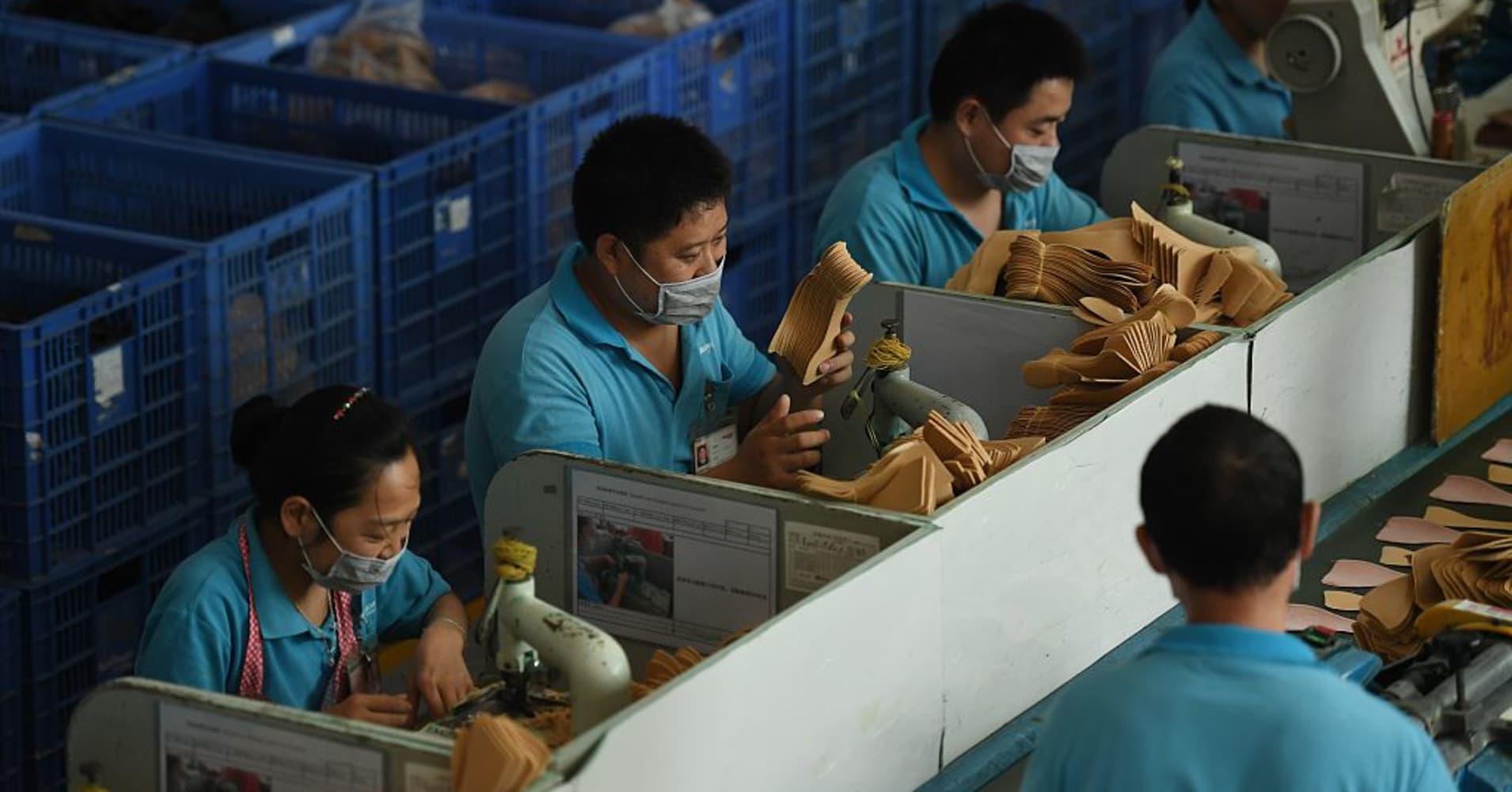
The impact of Trump’s tariffs on China’s economy has mostly only been psychological so far in the ongoing trade war, analysts say.
That’s may be set to change next year, potentially denting Chinese growth.
“With the tariffs we haven’t seen the direct impact, but we’ll see that next year,” said Tom Rafferty, principal economist for China, at The Economist Intelligence Unit.
“The risk here (is) it’s going to slow down pretty clear into 2019,” he said. “Global demand is going to shift down a notch or two.”
Manufacturing and exports have helped drive China’s rapid ascent to the world’s second-largest economy. However, challenges are mounting as so-called synchronized global growth looks set for a downturn. China’s GDP growth has already fallen to its slowest pace in more than two decades, and Beijing is trying to shift the economy to a consumption-driven one, while reducing reliance on debt for fueling growth. Meanwhile, trade worries add to domestic uncertainties that are already hitting consumer sentiment.
Trade tensions between the world’s two largest economies escalated this year as the U.S. under President Donald Trump initiated tariffs on $250 billion worth of Chinese goods — two-thirds of the bilateral goods deficit in 2017. Beijing responded with its own levies on $110 billion worth of U.S. goods. In the last month, both sides reached a temporary ceasefire on new escalations. The White House has agreed not to raise tariffs in January if it can broker a deal with China by early March, while Beijing has announced cuts to some tariffs on animal feed meals and autos.
In theory, the tariffs raise prices for U.S. consumers and reduce demand for Chinese-made products, hitting an already slowing economy. Still, China’s trade surplus with the U.S. hit a record in November.
“If anything, China is doing quite well because of the exports, because of the frontloading,” said Zhu Ning, professor of finance at Tsinghua University and deputy director of China’s National Institute of Financial Research.
Like several other experts who spoke with CNBC for this story, Zhu said he expects the trade tensions to have a more significant impact on China’s economy next year, notably through a slowdown in exports.
The economy is already showing some signs of trepidation. After strong year-over-year export growth of 14.4 percent in September and 15.6 percent in October, growth dropped to a disappointing 5.4 percent increase in November, according to official figures accessed through the Wind Info database.
The southern province of Guangdong, by far the largest source of Chinese exports, stopped publishing a business activity index in October. The last release, in September, of the province’s purchasing managers’ index showed 50.20, barely above the 50 level that separates expansion from contraction, according to Wind. The national PMI hit 50 in November.
China’s National Bureau of Statistics said in an online post dated Dec. 18 that the Guangdong Province Department of Industry and Information Technology did not reapply for permission to conduct the survey that’s behind the index.
“Next year, we’ll see exports slow to low, single-digit growth,” said Larry Hu, head of greater China economics at Macquarie Group. He said he expects the U.S. and China will reach a deal, and that a slowdown in China’s property market will have a bigger impact on the economy than tariffs.
Be the first to comment